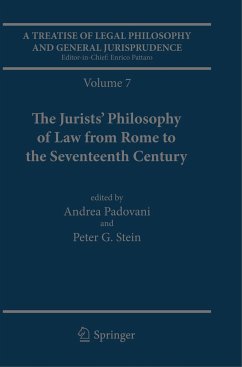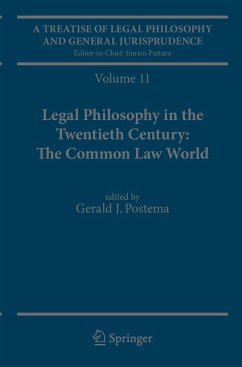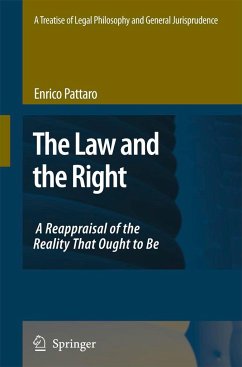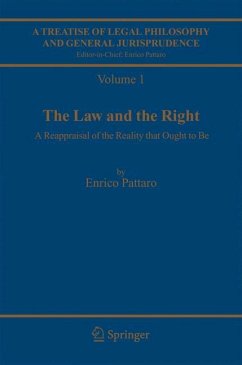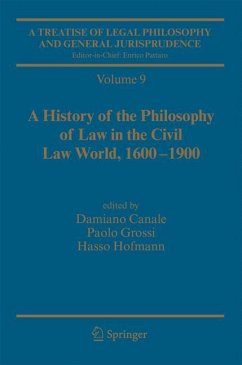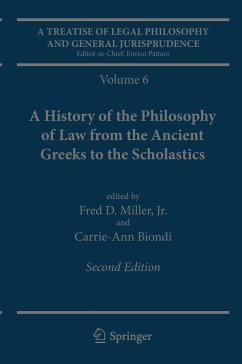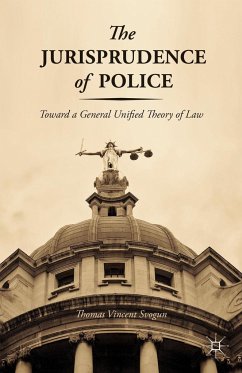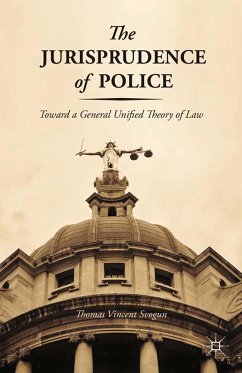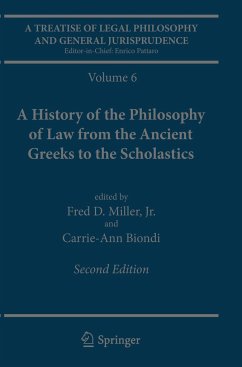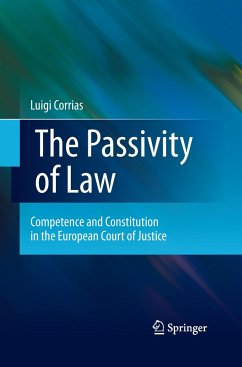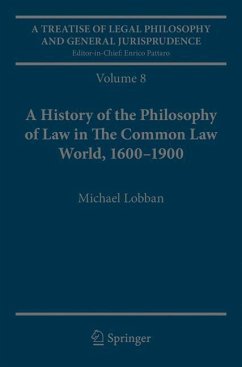
A Treatise of Legal Philosophy and General Jurisprudence
Volume 8: A History of the Philosophy of Law in The Common Law World, 1600-1900
Versandkostenfrei!
Versandfertig in 6-10 Tagen
46,99 €
inkl. MwSt.
Weitere Ausgaben:

PAYBACK Punkte
23 °P sammeln!
Volume 8, the third of the historical volumes of A Treatise of Legal Philosophy and General Jurisprudence, offers a history of legal philosophy in common-law countries from the 17th to the 19th century. Its main focus (like that of Volume 9) is on the ways in which jurists and legal philosophers thought about law and legal reasoning. The volume begins with a discussion of the 'common law mind' as it evolved in late medieval and early modern England. It goes on to examine the different jurisprudential traditions which developed in England and the United States, showing that while Coke's vision ...
Volume 8, the third of the historical volumes of A Treatise of Legal Philosophy and General Jurisprudence, offers a history of legal philosophy in common-law countries from the 17th to the 19th century. Its main focus (like that of Volume 9) is on the ways in which jurists and legal philosophers thought about law and legal reasoning. The volume begins with a discussion of the 'common law mind' as it evolved in late medieval and early modern England. It goes on to examine the different jurisprudential traditions which developed in England and the United States, showing that while Coke's vision of the common law continued to exert a strong influence on American jurists, in England a more positivist approach took root, which found its fullest articulation in the work of Bentham and Austin.



